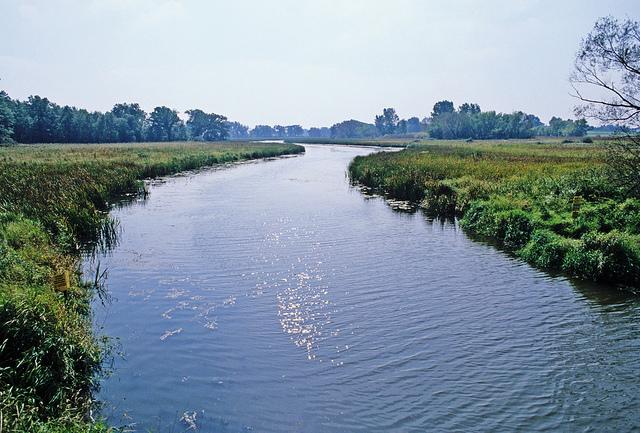The Dane County Board of Supervisors recently established new goals aimed to reduce phosphorus runoff in the Yahara Lakes by improving farming techniques. These goals include supporting and encouraging conservation efforts, improving nutrient management, reducing runoff, improving regulations, developing new programs and supporting existing ones.
Although Madison’s tap water is safe to drink, according to research by the Environmental Testing Lab (Public Health), phosphorus runoff can cause huge algae blooms. An algae bloom is the rapid increase in the population of algae in water systems. It takes just one pound of phosphorus, mixed with nitrogen and carbon, to create five hundred pounds of algae in water, according to research by Ron Struss, Water Resources Educator for the University of Minnesota Extension.
Sharon Corrigan, Chair of the Dane County Board, acknowledged the effort Madison has put into maintaining the lakes in the past.
“Over the years we’ve spent millions of dollars trying to clean the lakes and to keep runoff from coming into the lakes,” Corrigan said.
Phosphorus has multiple sources, including runoff from cities and construction sites. However, the primary cause is runoff from farms, which correlates with the imbalance between crop uptake and nutrients in manure in the Yahara Lakes area, Rebecca Larson, an assistant professor in bio-waste, said.
Runoff is caused by the movement of manure and soil. Corrigan said using certain types of manure during different times of the year, ensuring there is enough space for manure storage, creating buffer strips and planting cover crops to restore nutrients and prevent erosion are all key ways to reduce runoff.
“The nutrient management plan is something that farmers do to calculate how much [fertilizer] they put on their land,” Corrigan said.
This is also used to assess how many nutrients are being taken out of the soil during harvesting, and how many need to be put back to create a healthy balance. The goal of this plan is to prevent the overapplying of phosphorus and other nutrients, Corrigan said.
Teams of professors, scientists and students have been researching ways to reduce runoff and improve agricultural practices, Larson said.
The University of Wisconsin is directly assisting the public and farmers through research and other opportunities. UW Discovery Farms conducts research on water runoff from fields to see which nutrients are leaving farms and ending up in the lakes. UW Extension Dane County performs cover crop and composting manure research with Yahara Pride Farms, an organization that aims to reduce phosphorus runoff through nutrient management, Jeff Endres, Chair of Yahara Pride Farms, said.
“Through cover crop research we try to find which crops are more effective and protect the soil through the winter months, and with composting manure we are learning ways to reduce nutrients from leaving the farm,” Endres said.
To improve manure management, farmers need to be aware of weather conditions and perform low disturbance manure injection, Endres said.
Students can get involved by attending council meetings — which are open to the public — where they can voice their opinions. There are many research opportunities with different kinds of faculty, Larson said.
“We need more people to get out there and understand the science and explain that to others … and that’s a great place for students to get involved,” Larson said.
With grant, Dane County to combat climate change through research, policy
The new goals and practices will not bear a cost to farmers. There are other ways revenue is being generated to support relevant research projects and organizations, such as Yahara WINS and the Yahara CLEAN Strategic Action Plan. These costs are covered by a combination of the state, county, partnerships and grants, Corrigan said.
The Department of Land and Water Resources is currently making a draft of changes to the current goals that will be introduced this fall, but the effective date may or may not be this fall. The Department hopes that these changes will go into effect next year, Corrigan said.
Incentive programs are in place to encourage farmers and researchers. Yahara Pride Farms has a certification program where a Conservation Resource Manager works with the farmer to analyze their field for high-risk areas of soil movement and erosion, while also developing a nutrient management plan, Endres said.
If the farmer scores high enough on the assessment, they can become a certified Yahara Pride Farms member. A new incentive is also in the works to add value to the products of farmers who become members.
Farmers can make a difference by being involved and voicing their concerns. It can be hard to get agriculture’s point of view to the public, as it’s often portrayed differently than it occurs, Endres said.
“The most important voices are the farmers,” Endres said. “They know what is best for their farms.”












